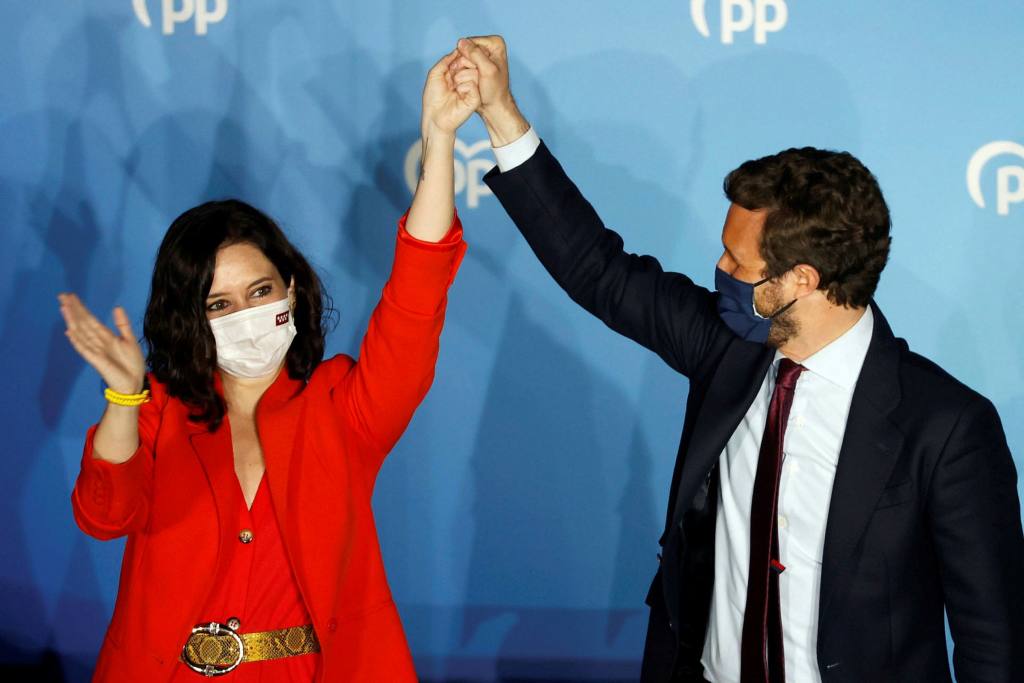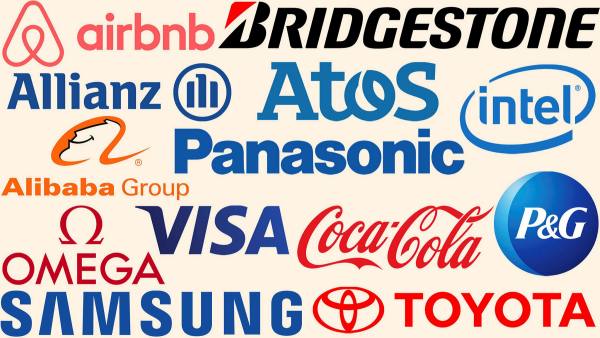At one point in his career, not too long ago, Pablo Iglesias had expected to become prime minister, part of a reshaping of Spanish politics that would empower the radical left.
But this week the leader of Spain’s Podemos announced the end of his political ambitions after coming fifth in a high-stakes election in Madrid, a contest in which he had planned to rally the left but instead united the right against himself.
“We have failed,” said the 42-year-old, who until last month served as a deputy prime minister in the national government, as he announced he was resigning all his remaining posts. “I am not contributing to an increase in support.”
It was a startling denouement for a man who had once hoped to lead a national government of the left — on the basis of inaccurate exit polls in the 2015 general election — but whose movement became weakened by internal feuds and failed to prosper in power.
Iglesias’s fall is more than a gamble that turned out to be one of the worst bets in Spain’s recent history; more even than an existential crisis for Podemos, which he has come to dominate in recent years, with the departure of his internal rivals.
It is also part of a political earthquake that has enfeebled Spain’s Socialist-led government, delivered a crushing victory to its foes on the right and strengthened regional leaders against the central administration.
The big victor of the Madrid vote is Isabel Díaz Ayuso, the regional leader who triggered the election and doubled the votes of her conservative People’s party, partly reversing the fragmentation of the Spanish right in recent years.

After securing her victory, she exulted: “They are not going to be able impose anything on us any more.” It was an indication that the result may accelerate a long-term trend in which the regions have gained power at the expense of the national government.
The Socialists are debilitated by their dismal showing in the race — from coming first in the previous election, in 2019, they fell to third place, losing more than a third of their vote — as well as the weakness of Podemos, their national coalition partner.
In Tuesday’s vote, both came behind More Madrid, a party formed by ex-Podemos leaders.
“The Socialists are partly being punished for their management of the pandemic and the economy [which last year contracted by 10.8 per cent],” said Pablo Simón, a prominent Spanish political scientist. “Sánchez is trusting that vaccinations, recovery and EU funds will improve his situation.”
In the meantime, the left is on the defensive. Díaz Ayuso managed not only to win back support from Ciudadanos, a failing centrist formation, but to increase the right’s overall share of the vote — to 58 per cent in Tuesday’s election from 51 per cent in 2019 — as she persuaded Socialists and people who had previously abstained to back her.
Both sides indicate that at least part of that success was due to Iglesias.
In his valedictory comments, Iglesias — a former adviser to the government of Venezuela whom Díaz Ayuso denounces as a disciple of the late Hugo Chávez — appeared to acknowledge that he had mobilised conservative and centrist votes against him more than he had energised the left. “I became a scapegoat,” he said.
By entering the campaign, the Podemos leader became a focus of attention, eclipsing the Socialists’ 72-year-old candidate Angel Gabilondo, who briefly and unconvincingly protested he would not form a government with Iglesias.
Europe Express newsletter
Sign up here to receive Europe Express, your essential guide to what happens in Europe, sent straight to your inbox every weekday.
Eventually, the Socialists adopted an Iglesias-style strategy, campaigning against the threat of “fascism” — a reference to the likelihood that Díaz Ayuso would be propped up in power by the hard-right Vox. But Simón notes that Iglesias had the lowest poll ratings of the main candidates in the contest, an indication that voters were more concerned to keep him — and hence the left — out of office.
Now Iglesias has left Podemos to an uncertain future, although he has indicated his preference that he be succeeded as leader by Yolanda Díaz, Spain’s minister of labour, who has already taken his place as deputy prime minister.
She is a less divisive figure, despite being a card-carrying member of the Communist party. But daunting challenges remain for Podemos, which entered the national government as junior partner to the Socialists in January last year.
Like other smaller groupings to the left of the leading party, such as Georges Marchais’s Communists in François Mitterrand’s France of the early 1980s, or Germany’s Social Democrats during the grand coalitions of the last decade, its popularity has slid while in office.
“The junior partners in uneven coalitions often suffer a lot,” said Sandra León of the Carlos III University in Madrid, who noted that Podemos had failed to win representation to a number of regional parliaments, the ground zero of Spanish politics. “Podemos was built around the figure of Pablo Iglesias and this change of leadership clearly comes at a very difficult time for them.”
As Iglesias exits politics, the terrain could barely be more different to the election of 2015, when Podemos and Ciudadanos entered the national parliament with more than a third of the vote between them.
Now one of those forces — the centrist Ciudadanos — appears to be in terminal decline while Podemos is seeking to regain relevance as second fiddle to the Socialists, in the shade of a resurgent right.
How easy or hard was it to use the FT app today?
AB InBev chief Carlos Brito to leave after 15 years in top job
By Judith Evans 5
Carlos Brito, who transformed a Brazilian regional brewer into the world’s largest beer maker Anheuser-Busch InBev, is to step down as chief executive of the group after 15 years.
AB InBev said Brito would relinquish his role to Michel Doukeris, president of the group’s North America business, on July 1 and leave the company after more than three decades.
The Brazilian’s departure marks the end of an era for the brewing industry after Jean-François van Boxmeer stood down as chief executive of Heineken in 2020. Both helped drive the sector’s consolidation, acquiring regional players to create global powerhouses in brewing.
It also caps a period of leadership change within AB InBev after the exit of the group’s finance chief Felipe Dutra in April 2020 and its chair Olivier Goudet in 2019. Dutra was replaced by Fernando Tennenbaum, chief financial officer at the company’s Brazilian unit, while Martin Barrington, former chief executive of tobacco group Altria, took over as chair.
“Brito was the architect who led and built AB InBev into the world’s leading beer company and a leading global consumer packaged goods company by masterfully integrating the many businesses that comprise AB InBev today,” said Barrington.
The brewer of Budweiser, Stella Artois and Corona had seriously considered outside candidates for the role, the Financial Times reported last year, but opted for Doukeris, another Brazilian who joined the group 25 years ago, rising through its sales hierarchy before running the Asian and North American businesses.
AB InBev said the board had unanimously elected Doukeris to replace Brito, who turns 61 on Saturday.
Brito’s exit comes as the company wrestles with the impact of the pandemic on top of a debt load that stood at $82.7bn at the end of 2020, incurred by its acquisition of SABMiller in 2016. The company cut its dividend in half in April last year.
It reported on Thursday that first-quarter revenues had risen 17.2 per cent, ahead of expectations, to $12.3bn, on a 13.3 per cent increase in beer volumes sold as drinking and socialising started to recover from pandemic restrictions, especially in China. It generated $1.1bn of underlying profit.
Brito’s brewing career started in 1989 when he joined the Brazilian brewer Brahma, working for his mentor Jorge Paulo Lemann, founder of private equity company 3G, who paid for his education at Stanford.
Brahma began a deal-led expansion, transforming into regional brewer Ambev. Brito took over as chief executive in 2004, and that same year the company merged with Belgium’s Interbrew, maker of Stella Artois, to create InBev. Four years later it carried out a hostile takeover of the US group Anheuser-Busch to become a global brewer.
Brito and the company became known for a strategy of relentless acquisitions and cost-cutting, but the company has in recent years been making disposals to help pay down debt, including the sale of its Australian division for $11bn to Asahi last year.
Edward Mundy, analyst at Jefferies, said: “[Doukeris] brings strong premium focus, having implemented the High End division in China as well as on digital with the company’s first direct-to-consumer ecommerce platform. Clarity on management succession should be well-received.”
How easy or hard was it to use the FT app today?
Olympics sponsors duck questions over Beijing 2022 as boycott calls grow
By Demetri Sevastopulo in Washington, Sara Germano and Andrew Edgecliffe-Johnson in New York and Murad Ahmed in London 0
Multinational companies sponsoring the 2022 Beijing Winter Olympic Games are evading questions about their participation as China comes under intense pressure over the repression of Uyghurs in Xinjiang.
As calls for a boycott of the event grow among activists, companies are increasingly being urged to take a stand over Xinjiang — at the same time as the Chinese government has encouraged boycotts of brands that speak out.
Letters from human rights groups have gone unanswered and 11 of the 13 companies that have major sponsorship deals with the International Olympic Committee that include the Beijing games did not comment when asked by the Financial Times if they were reconsidering their plans.
They include Coca-Cola, Visa and Airbnb from the US, Panasonic and Toyota from Japan, and Samsung from South Korea. Alibaba, the only Chinese company that is a full IOC sponsor, also declined to comment.
Allianz, the German insurer, defended its position, saying its presence in nations with a “different view of human rights” contributed to “prosperity and security”. Omega, the Swiss watchmaker, said it was focused on the athletes and its traditional role as the official timekeeper for the Olympics.
The Biden administration in the US and the Canadian, Dutch and UK parliaments have all described the situation in Xinjiang as genocide, after reports of forced sterilisations and forced labour in the northwestern Chinese region.
“No comment isn’t really one of the possible answers on an issue that really has extraordinary support across the political spectrum in a number of countries,” said Sophie Richardson, China director at Human Rights Watch.
China also faces growing criticism over its crack down on the pro-democracy movement in Hong Kong, one of several anti-democratic and assertive moves by President Xi Jinping.
The US has held talks with allies, including the UK, about a possible diplomatic boycott of the Winter Olympics.
Despite the reluctance to comment publicly, one person involved in Olympic marketing discussions said the Xinjiang issue was “swirling” among the companies but that executives were uneasy about their role.
Zumretay Arkin of the World Uyghur Congress, an umbrella activist group, said companies were “walking on eggshells” amid the rising calls for boycotts.
“These companies have really beautiful and strong statements about condemning human rights abuses on their websites but when it comes to implementing the policies they just freeze,” she said.
Taking a stand?

Omega is the official timekeeper of the Olympic Games, a role it has already held on 28 occasions since 1932 . . . Omega was also at the service of the athletes for the Olympic Games in Moscow in 1980, boycotted at the time by a part of the western world, as well as those in Los Angeles in 1984, boycotted by several other nations — Omega
No comment — Airbnb, Alibaba, Atos, Bridgestone, Coca-Cola, Intel, Panasonic, Procter & Gamble, Samsung, Toyota and Visa
Human rights groups have taken particular aim at Mars because the US food company’s Snickers confectionery division is one of two non-Chinese companies with a sponsorship deal specifically with Beijing, as opposed to being locked into multiple Olympics with IOC deals.
“We’re targeting Snickers because they are a Beijing 2022 sponsor, but also since they pride themselves on having an incredible human rights policy,” said Mandie McKeown of International Tibet Network, one of more than 200 human rights groups that have written two letters to Mars.
Mars, which has not responded to either letter, declined to comment. EF Education, a Swiss company that has a sponsorship deal with Beijing for the 2022 games, also declined to comment.
Activists have targeted Airbnb more than the other IOC sponsors because Beijing places travel restrictions on Uyghur Muslims and Tibetans, including banning them from getting passports which are needed to book Airbnb accommodation in China.
“Partnership with a government whose policies go against the very core of Airbnb’s public commitment to human rights is an affront to that original mission,” they wrote to Airbnb, which has not responded.

A spokesperson said the post, which was seen by the FT, was not removed due to concern about a backlash. But she declined to explain the rationale for the decision, which occurred after Beijing last month engineered consumer boycotts of Nike and H&M over their previous statements on forced labour.
The FT also contacted 16 companies that sponsor the US Olympic team, including Nike and NBC, asking whether they were concerned about reputational risk for backing a delegation to the games. Delta Air Lines was the only company to respond, saying it had “no affiliation” with the Beijing organising committee or Chinese government.
The US Olympic and Paralympic Committee said “corporate sponsors provide essential financial resources for Team USA. Without sponsors, America’s elite athletes would not be able to compete.”
The IOC said the games were the “only event that brings the entire world together in peaceful competition” and that the diverse participation meant it must be “neutral on all global political issues”.
Lobsang Sangay, head of the Tibetan government in exile, said that amid protests over the 2008 Beijing Olympics, stakeholders, including the IOC, said the move would improve human rights. “It didn’t happen. That shows that even the IOC was taken for a ride,” he said.